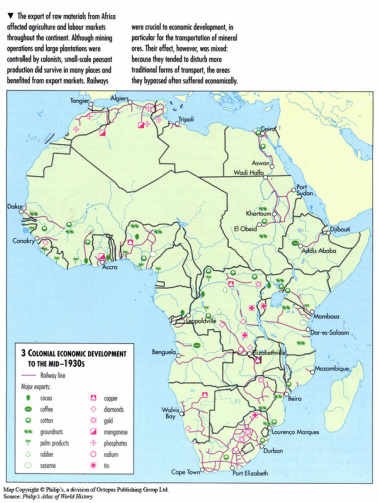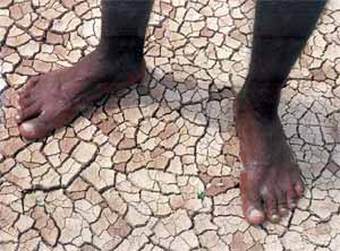Poverty and Political Instability

When Africa became independent, many colonialists abruptly left and hastily appointed new African leaders. The new powers had no experience, and many had no idea how to properly govern, so they learned from trial and error. As a result, the new leaders made grievous mistakes that put Africa in debt, causing poverty and starvation that has remained until today. Colonial administration during the colonization of Africa also led to political tension and instability, a leading problem in modern-day Africa.
"The political situation [in Uganda] seemed remarkably stable. In fact, however, Uganda was built on the most fractured of foundations. Buganda was only one (albeit the principal one) of several
traditional kingdoms the British had lumped together into one protectorate; and with independence
came not only heightened ethnic rivalries but also religious, regional, and ideological tensions...the jigsaw puzzle of national boundaries the colonial powers left behind bore little relationship to pre-existing ethnic or linguistic identities...in Uganda, these divisions were never overcome. No central authority ever managed to impose a national identity on the disparate groups competing for power, and the result was that no one group or party was ever seen as legitimate. The tensions within the polity could be submerged, but they could never be resolved."
--"Why Africa Stays Poor: And Why It Doesn't Have To" by David Aronson
"The political situation [in Uganda] seemed remarkably stable. In fact, however, Uganda was built on the most fractured of foundations. Buganda was only one (albeit the principal one) of several
traditional kingdoms the British had lumped together into one protectorate; and with independence
came not only heightened ethnic rivalries but also religious, regional, and ideological tensions...the jigsaw puzzle of national boundaries the colonial powers left behind bore little relationship to pre-existing ethnic or linguistic identities...in Uganda, these divisions were never overcome. No central authority ever managed to impose a national identity on the disparate groups competing for power, and the result was that no one group or party was ever seen as legitimate. The tensions within the polity could be submerged, but they could never be resolved."
--"Why Africa Stays Poor: And Why It Doesn't Have To" by David Aronson
Mon0-Economy
"New Realities"
Professor Kenneth P. Vickery, Ph.D., Yale University
North Carolina State University
Professor Kenneth P. Vickery, Ph.D., Yale University
North Carolina State University
|
Part 1
"All the colonial powers, naturally enough, sought economic gain from their new possessions. We know that economic factors were among the various motivations leading them to go into Africa in the first place. And, after all, colonial conquest and occupation was not cheap. It cost money and blood. It was not surprising, therefore, that they expected some return on that investment, primarily by pursuing a far more thorough exploitation of Africa's raw material products than had previously been possible. Now, by raw materials I refer primarily to things coming out of the earth: either mineral resources or cash crops."
|
Part 2
"Colonies tended, in the twentieth century, then, to become mono-economies. Mono-economies: Specializing in the increased production or export of a single commodity. Now, it's a slight overstatement, actually, saying "mono-economy"; it could have been two commodities, or three, but, nonetheless, the notion of this intense concentration on one, or at most a few, commodity products for export became characteristic of virtually all the colonial economies. Over time in the twentieth century, then, territories become identified with—in some cases become almost synonymous with—a certain kind of primary product."
|
Soil Erosion
Mono-economy intensively overused and degraded the quality of the soil. As the land became decreasingly fertile, farmers were increasingly driven to overwork the land. Today, generations of Africans suffer the consequences of the colonialists' careless squandering—reduced soil fertility, severe poverty, drought, famine, and desertification. |



